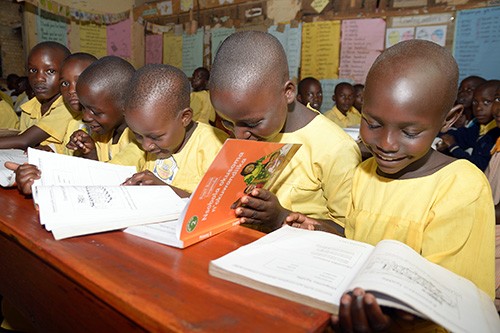
While there have been sustained improvements in enrollment in primary education, owing mainly to the introduction of Universal Primary Education (UPE) in 1997, retention and transition of children to higher levels has remained low—more particularly in relation to the girl child. Seven out of every ten learners who start primary one do not graduate the primary cycle. Early marriage and pregnancy are leading contributors to girl child drop out from primary school (31 percent for marriage and 21 percent for pregnancy). In contrast, the top reason that boys drop out is lack of interest in schooling (42 percent).
USAID is working with the Ministry of Education and Sports to promote early grade reading and improve the literacy skills of 3.5 million children. USAID’s program aims to increase Ugandans’ literacy, ensure a safe and supportive school environment and increase health-seeking behaviors through measureable improvements in student knowledge and life skills.
USAID activities strengthen the teaching workforce through improvements in training, retention and supervision and administration tools. Programs support evidence-based curriculum reform and policy development, which are critical to the quality of education systems. In addition, USAID engages local communities and empowers them to participate in the education of their children.
By investing in literacy, HIV/AIDS prevention and providing a safe and supportive school environment, USAID expects to increase students’ success and retention in school and to promote healthy behaviors and lay the foundation for the socioeconomic benefits that have been demonstrated to accrue from students’ education.








Comment
Make a general inquiry or suggest an improvement.